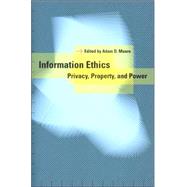Information Ethics: Privacy, Property, and Power
, by Moore, Adam D.- ISBN: 9780295984896 | 0295984899
- Cover: Paperback
- Copyright: 6/7/2005
This anthology focuses on the ethical issues surrounding information control in the broadest sense. Anglo-American institutions of intellectual property protect and restrict access to vast amounts of information. Ideas and expressions captured in music, movies, paintings, processes of manufacture, human genetic information, and the like are protected domestically and globally.The ethical issues and tensions surrounding free speech and information control intersect in at least two important respects. First, the commons of thought and expression is threatened by institutions of copyright, patent, and trade secret. While institutions of intellectual property may be necessary for innovation and social progress they may also be detrimental when used by the privileged and economically advantaged to control information access, consumption, and expression. Second, free speech concerns have been allowed to trump privacy interests in all but the most egregious of cases.At the same time, our ability to control access to information about ourselves--what some call "informational privacy"--is rapidly diminishing. Data mining and digital profiling are opening up what most would consider private domains for public consumption and manipulation.Post-9/11, issues of national security have run headlong into individual rights to privacy and free speech concerns. While constitutional guarantees against unwarranted searches and seizures have been relaxed, access to vast amounts of information held by government agencies, libraries, and other information storehouses has been restricted in the name of national security.






